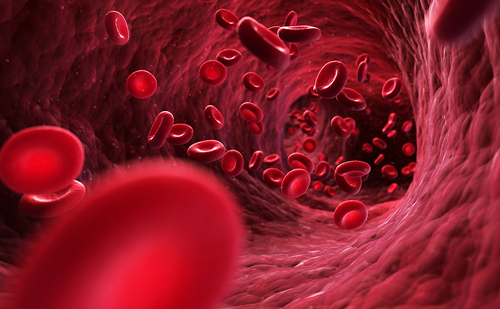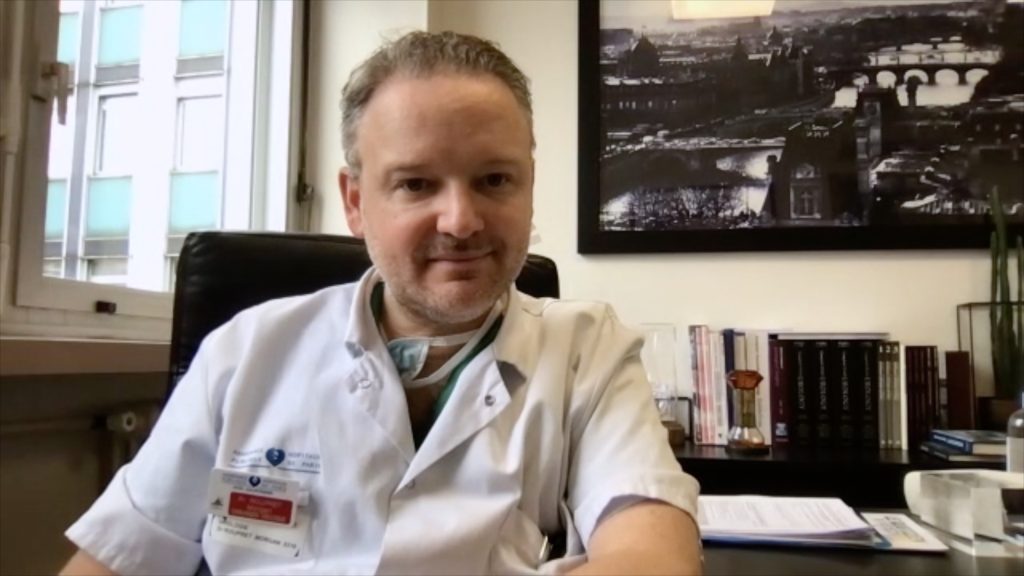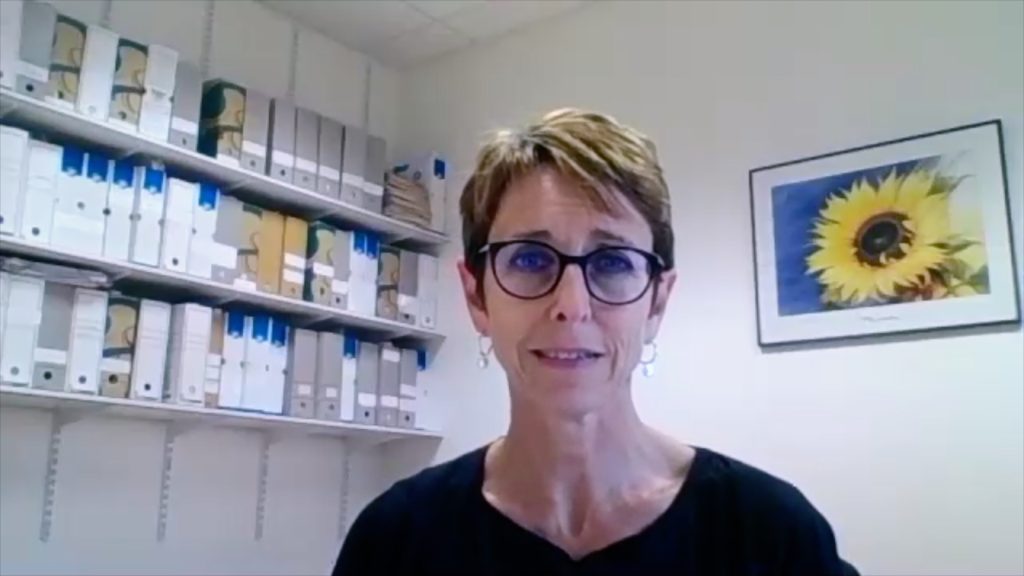Andrea Gombos, Evandro de Azambuja, Ahmad Awada
Oncology Medicine Department, Institut Jules Bordet, Université Libre de Bruxelles, Brussels, Belgium
Q. How does breast cancer and its treatment affect an individual’s susceptibility to COVID-19?
There is limited information on patients with cancer and COVID-19 infection at this moment. What is known is that COVID-19 can lead to more intensive care unit (ICU) hospitalisations in patients who are older and have comorbidities; which are common features in cancer patients.1 In a recent retrospective review of 28 patients with cancer (lung 25%, oesophagus 14%, breast 10% and the remaining 51% other cancer types) infected with COVID-19, 78.6% required oxygen therapy, 21.4% required ICU admission and 53.6% developed severe events. Clinical outcomes included staying in hospital (35.7%), discharge from hospital (35.7%) and death (28.6%); the most common cause of death was acute respiratory distress syndrome in 62.5%.2 Information on patients with breast cancer only and COVID-19 is still scarce and several efforts are being made to collect more prospective information on this issue.
Q. How is the COVID-19 outbreak affecting consultations between patients with breast cancer and oncologists?
Many consultations with patients with breast cancer are affected by COVID-19. What we (and most of the hospitals) are doing during the crisis is minimising visits to the hospital. Examples of measures we are taking, include:
- Telephone consultations for patients in follow-up (early breast cancer) to ensure they are well and that they are receiving endocrine therapy (if prescribed for their disease). Prescriptions and blood tests are sent by posts and a physical consultation will take place after the COVID-19 pandemic.
- Patients with metastatic oestrogen receptor-positive/human epidermal growth factor receptor 2-negative disease, receiving endocrine therapy (alone or with targeted agents), are called to ensure no side effects and that they have enough treatment (this item will be better described later on).
- With regards to new patients or second opinions: we are trying to see new patients (those who have never consulted an oncologist) with a more aggressive disease, and if treatment is urgently required, we can start it. Patients consulting for a second opinion are seen minimally as they are followed by their oncologist.
- Routine radiologic imaging exams and blood draws are avoided as much as possible in early breast cancer, and prescribed with caution in patients who are metastatic under treatment.
Q. What extra precautions should patients with breast cancer take?
Patients with cancer have roughly two-fold higher risk of SARS-CoV-2 infection than the general population (odds ratio 2.31; 95% confidence interval 1.89–3.02).3 General protective measures, recommended by the World Health Organization, are also applicable for patients with breast cancer.4 Efforts should be made to provide personal protective equipment for healthcare providers and cancer patients, and patients who are undergoing active treatments should strictly apply social distancing and avoid any unnecessary travel to the hospital.
Patients with cancer are generally well instructed to follow their symptoms and pay attention to signs of infectious disease. Patients should be additionally instructed to recognise COVID-19 related symptoms. In the case of the occurrence of any of these symptoms, instructions given by the treating hospital should be carefully followed.
Q. How does infection with COVID-19 affect the treatment plan for patients with breast cancer?
Frequency of hospital visits should be massively reduced to minimise the risk of contracting SARS-CoV-2. Telemedicine tools are prioritised for all patients who are in follow-up or take endocrine therapy alone. Oral drugs (such as CDK4/6 inhibitors) can be delivered for several cycles or shipped, depending on previous tolerance. In patients with early stage luminal breast cancer, surgery will be considered first instead of neo-adjuvant chemotherapy, whenever possible. Neo-adjuvant chemotherapy should not be delayed in patients with high-risk breast cancer, and three-weekly regimens are highly recommended. All therapeutic decisions are taken during multidisciplinary meetings.
For patients with metastatic breast cancer, oral treatment has to be used whenever possible. The use of systemic therapy, including chemotherapy regimens with proven benefit (improved survival and/or quality of life), is recommended. Any systemic treatment, apart from endocrine therapy, should be interrupted in patients with proven SARS-CoV-2 infection, in particular those with symptomatic infection, until complete recovery. Patients undergoing surgical interventions should be routinely screened for COVID-19. In case of COVID-19 positivity and no symptoms, the decision and the timing of surgical intervention will be discussed by a multidisciplinary team, taking into consideration the benefit versus risk and the degree of emergency
Q. What advice would you give to family members and caregivers of patients with breast cancer?
The same protective measures are recommended for family members as for patients with breast cancer (see above). Adequate training for prevention and infection control should be provided to ensure a safe environment. Infected family members should strictly avoid contact with patients with breast cancer, even with those who are not receiving active treatments. The visit of family members to the hospital is not recommended, or should be limited to one person for those patients who need continuous assistance or major psychological support.
Healthcare professionals delivering or administering oral or subcutaneous drugs at patients’ homes should be correctly instructed and understand the dosage and schedule. They should also strictly apply protective measures. Other caregivers (such as general practitioners, psychotherapists, etc.) should prioritise telemedicine tools.
References
- Oh WK. COVID-19 infection in cancer patients: early observations and unanswered questions. Ann Oncol. 2020; doi: 10.1016/j.annonc.2020.03.297 [Epub ahead of print].
- Zhang L, Zhu F, Xie L, et al. Clinical characteristics of COVID-19-infected cancer patients: A retrospective case study in three hospitals within Wuhan, China. Ann Oncol. 2020; doi: 10.1016/j.annonc.2020.03.296 [Epub ahead of print].
- Yu J, Ouyang W, Chua MLK, Xie C. SARS-CoV-2 transmission in patients with cancer at a tertiary care hospital in Wuhan, China. JAMA Oncol. 2020 Mar 25 : e200980.
- World Health Organization. Coronavirus disease (COVID-19) advice for the public. Available at: who.int/emergencies/diseases/novel-coronavirus-2019/advice-for-public (accessed 20 April 2020).
Support: Commissioned, developed and supported by Touch Medical Media.
Published: 7 May 2020















